If one were to somehow make a word cloud of all the superlatives that have been written in praising the films of Akira Kurosawa, adjectives like “epic,” “majestic,” “bold,” “magnificent” and many other suitably awesome exclamations would dominate, while “winsome,” “adorable,” “sweet,” “charming” or “romantic” would certainly be relegated to the smaller fonts, if they showed up at all. But for those who have yet to discover this unique entry among the great Japanese director’s multitude of masterpieces, One Wonderful Sunday fits those latter descriptions perfectly. By art house standards, it’s a veritable rom-com, the likes of which Kurosawa never quite got around to making again over the course of a career that lasted another four decades or so. And on that merit alone, it deserves your rapt attention.
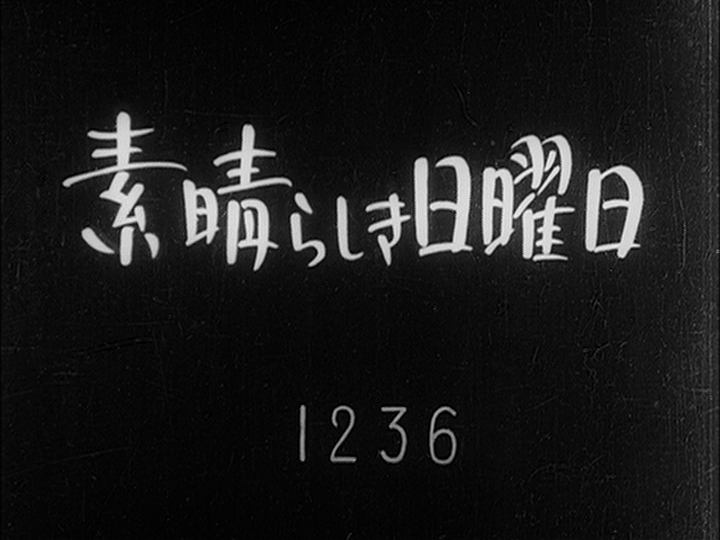
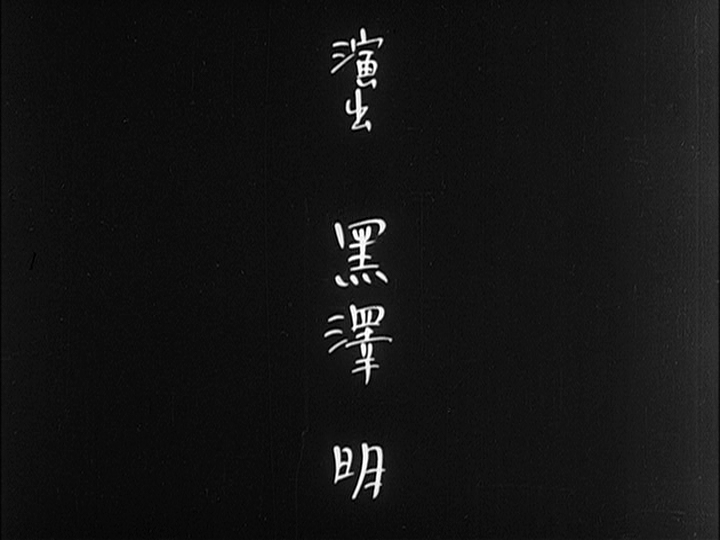
One Wonderful Sunday, from 1947, is found in Eclipse Series 7: Postwar Kurosawa, one of five films included in that set that all deal in some way or another with Japan’s experience of national and social reconstruction following the calamity of World War II, or the Pacific War as it’s known in that country. Though it’s the last among the films from that box that I’ll review here (the others being No Regrets For Our Youth, Scandal, The Idiot and I Live in Fear), it’s one of the earlier entries, and it predates Drunken Angel and Stray Dog, the two Kurosawa features preceding Rashomon that Criterion deemed worthy of releasing as solo titles. Bundled up with four other movies that didn’t wind up garnering the attention accorded to his undisputed classics, One Wonderful Sunday is an easy one to overlook or simply categorize as a relatively insignificant catalog title. But it’s to Kurosawa’s everlasting credit that this movie, when properly reckoned with, is as deserving of a revered reputation and on-going relevance as a film such as Vittorio diSica’s Bicycle Thieves, released the following year and rightfully heralded as an enduring milestone depicting a shattered society in a crucial phase of rebounding from disaster, while also forging new territory as to what cinema can achieve and contribute in the midst of such a struggle.
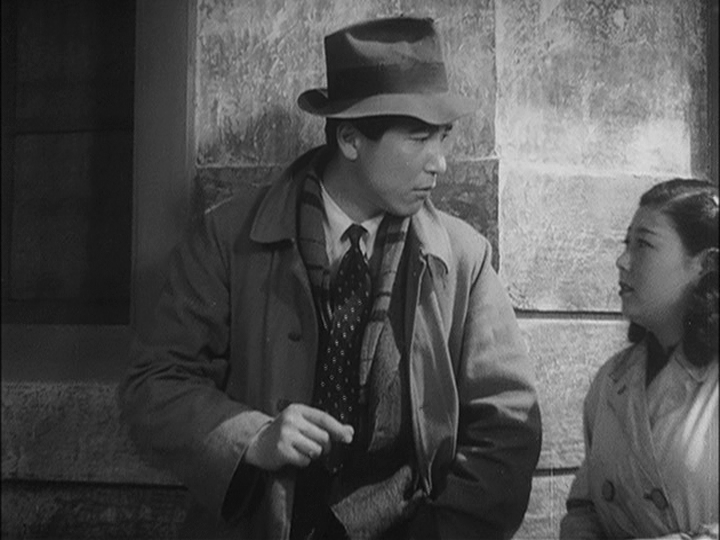
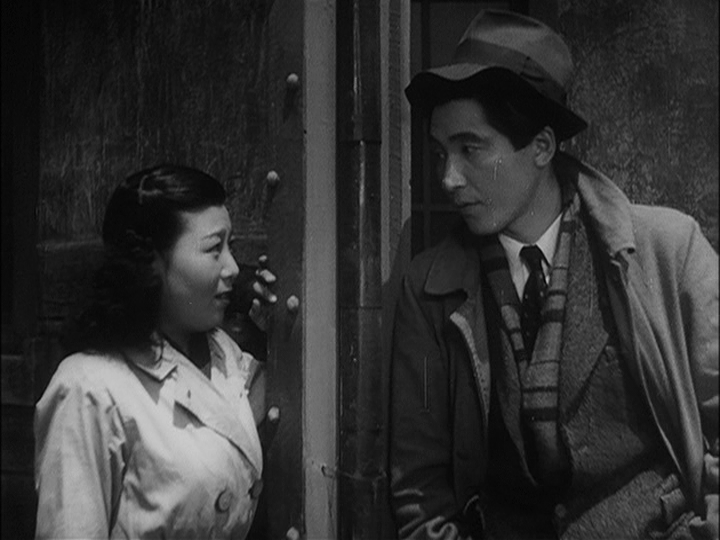
I recognize the significance of the words above, that I’m putting One Wonderful Sunday in the upper ranks of films not merely from that era but from one of the greatest filmmakers who ever lived. For those who justifiably regard Seven Samurai, Ikiru, Yojimbo, Ran, High and Low and any number of his other works as worthy of “All Time Top Ten” consideration (and I consider myself among that legion of Kurosawa fans), a relatively obscure entry like One Wonderful Sunday may seem just a tad too “minor” to deserve that endorsement. And perhaps when my ardor has cooled a bit, when I move on to watching other films in the days and weeks to come, some sense of balance may be restored, I’ll grant you that. But let me tell you, there is a lot to love about One Wonderful Sunday. Its very smallness and lack of grand-historic, life-encompassing pretense works inestimably in its favor. Not to take away from any of the marvelous films mentioned above, but I highly appreciate how this one snuck up on me – and reading the comments of others who’ve praised it only confirms the deep impression that this cinematic afternoon and evening spent with Yuzo and Masako left upon me.
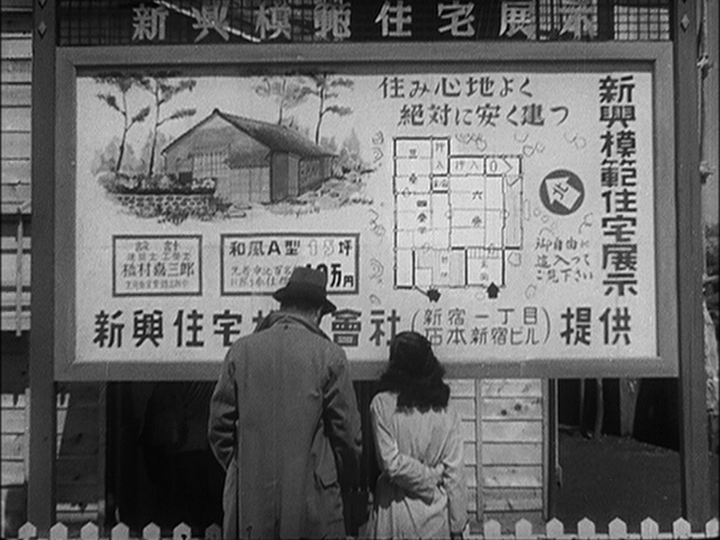
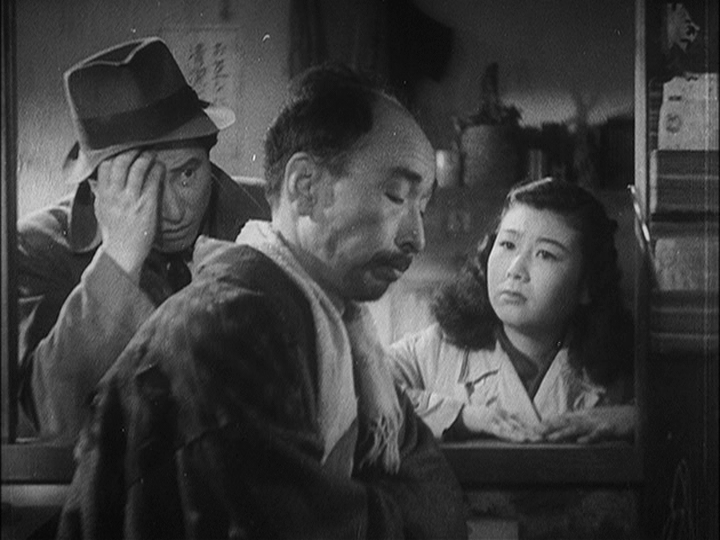
Yuzo (the guy) and Masako (the gal) are two representatives of the struggling working class that somehow found itself alive and facing the future in the unraveled society of postwar Japan. Both gainfully employed but earning only a bare sustenance wage, each resisting the allures and risks associated with the burgeoning black market trade that Kurosawa and others chronicled so ably in their 1940s noir films, Yuzo and Masako epitomize the struggles that honest men and women faced as they struggled to stay afloat in that chaotic environment. A young couple in love, ready in every way except economically to get married, establish a household and start a family, they have no real choice but to just keep the flicker of romance burning on once-a-week outings on Sunday afternoons. Strapped to the limitations that a mere 35 yen between them impose on their choice of recreational fare, One Wonderful Sunday is a most peculiar sort of “date movie,” but one that’s easy to relate to for any couple that’s had to go through their own version of being young, broke and in love.
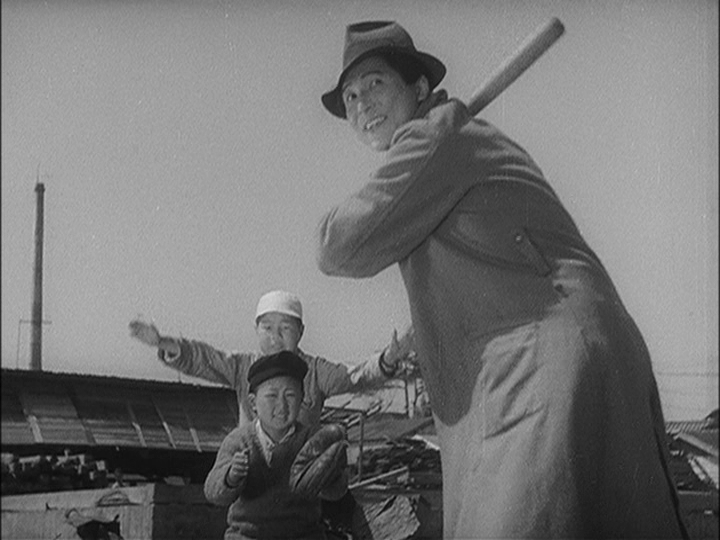
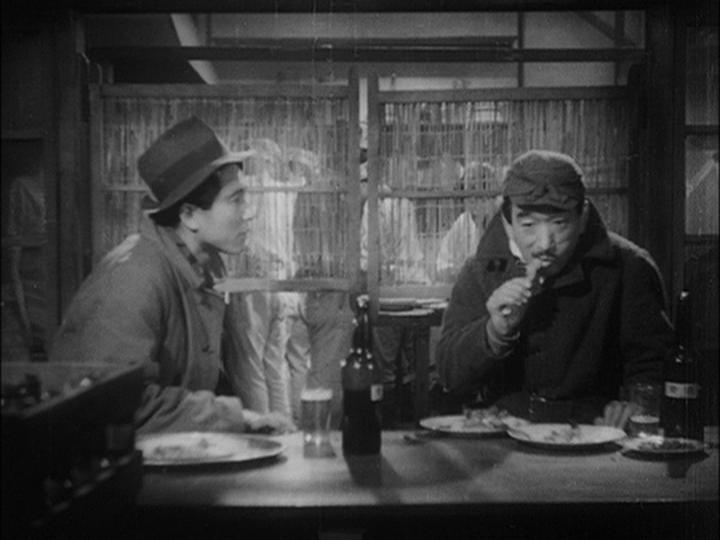
The first half of the film consists of just following the pair around as they try to find some suitably pleasant diversion despite their impoverished condition. After Masako disembarks from her train and slaps a purloined cigarette butt from Yuzo’s ashamed-but-desperate grip, they set off on their way, looking at a model start-up home and inquiring about a cheap room for rent that they might be able to afford, if they can endure the other hazards that come with the low-rent accommodations. Each activity provides a few moments of engagement, but as we observe their interactions, it becomes all the more clear just how hard it is for them to bear their respective burdens. Yuzo has to reconcile his notions of what it means to be a man with the undeniable sense of inadequacy that weighs him down, while Masako feels the need to emotionally prop up her boyfriend with encouragement even as she suppresses her own sense of frustration and fatigue. Even Yuzo’s effort to reach out to an old war buddy who’s apparently doing well reaps only futility, as he’s diverted by his friend’s subordinates down into the basement holding tank where street beggars and other scoundrels are routinely sent to receive philanthropic handouts that are the obligation of all who play the role of prosperous entrepreneur, both then and now.
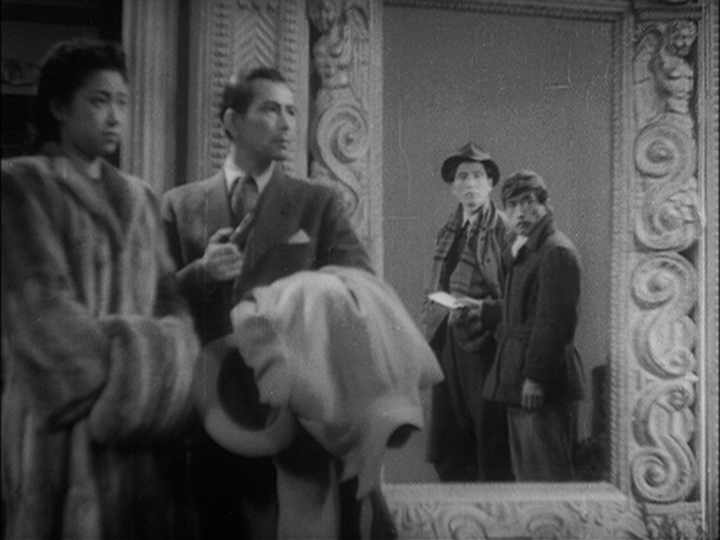
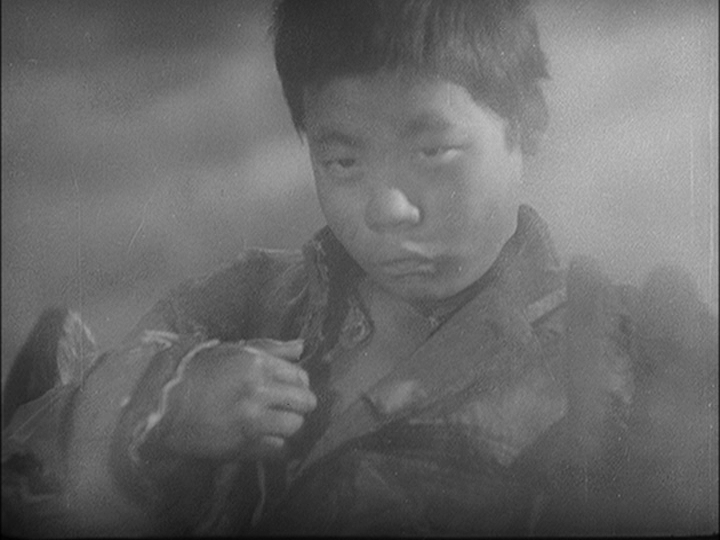
Yuzo and Masako’s trek continues as they’re forcefully reminded of the place they occupy in the social hierarchy – not ready to be counted among the self-satisfied or privileged, but not yet sunk to the lower depths of pauperdom either. Their memorable encounter with an ashen-faced feral street kid puts their plight in perspective, though his harsh rebuke and flagrant mockery of Yuzo’s condescending manners take their toll and then some.
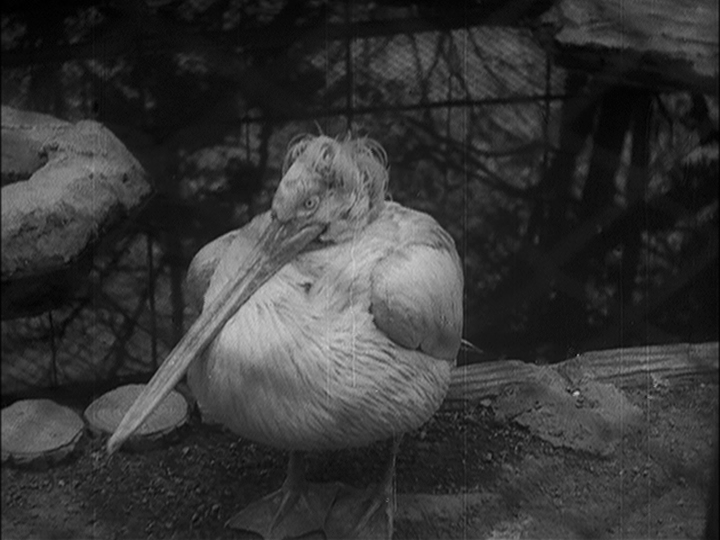
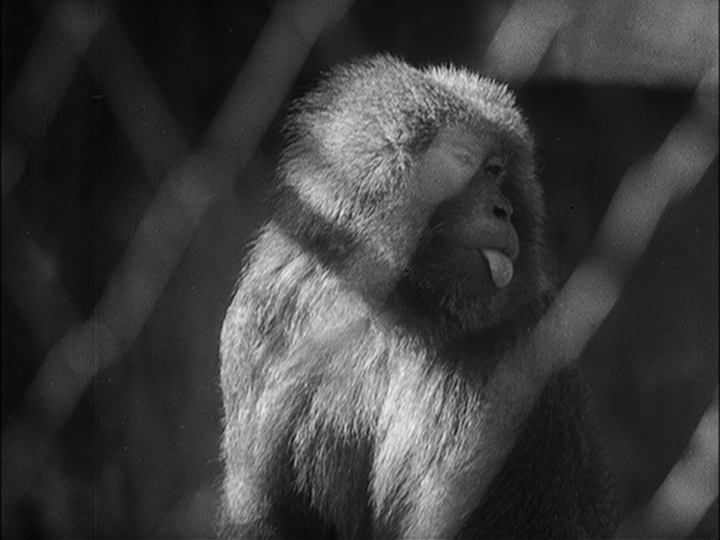
The mood of One Wonderful Sunday, up to this point, is probably not nearly as heavy as my words make it sound, but in any case, the affair is lightened considerably as our erstwhile young couple takes a trip to the zoo and indulges in a favorite pastime of our species, projecting human characteristics and attitudes on species whose actual perception of life remain all but inconceivable to our highly evolved mindset.
This video clip contains one of the most potent and affectively engaging sequences to be found in Kurosawa’s earlier works, as Yuzo and Masako impulsively settle on the objective of attending a classical music concert with the last of the funds they can manage to scrape together. The dynamic tracking shot, the propulsive momentum of paired young lovers eagerly hustling to meet the deadline, and the final infuriating twist as their plans are thwarted – these seven minutes or so are a better advertisement to check out One Wonderful Sunday ASAP than anything my words can convey.
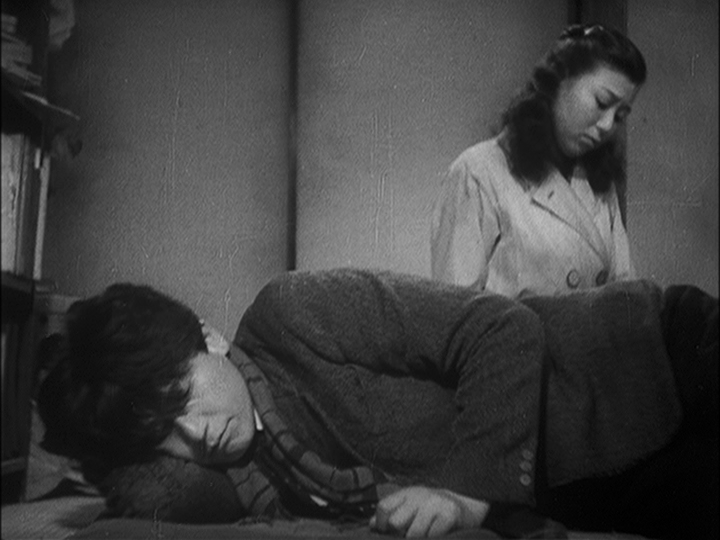
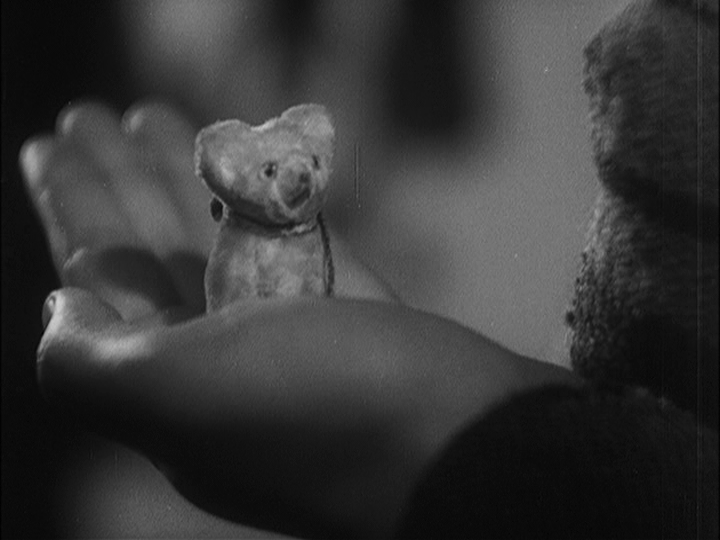
But even after that pivotal sequence, there are more emotively devastating parlays to come. Yuzo, now feeling all but utterly defeated in his attempts to show his lover a good time, resorts to a collapse into depression, inviting Masako back to his apartment for lack of any better idea, but unable to rouse himself to properly amuse her once he’s back in his familiar digs. Instead, he goes fetal on her, forcing her into an awkward veiled protest that ultimately results in her leaving him, perhaps for good, before they each realize the depth of their entanglement with each other and make the reluctant though inevitable turn toward reunion.
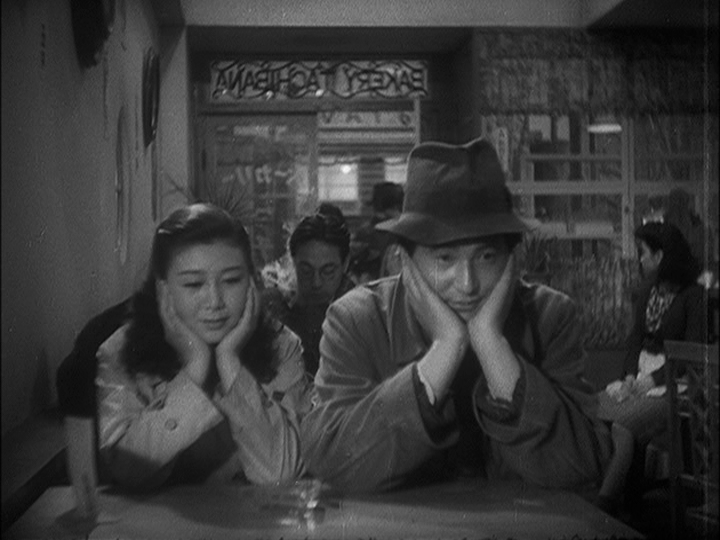
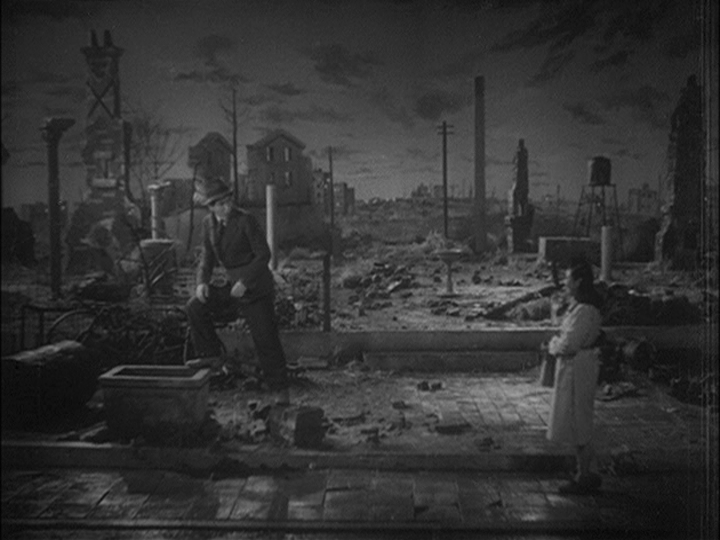
Putting the pitfalls and complexities of that relational maneuver behind them, Yuzo and Masako bid a bittersweet farewell to their Sunday afternoon and do their best to salvage something from the Sunday night yet to unfold. They drop in on a local coffee house, only to find themselves swindled at the last minute as the bill arrives, putting them 10 yen deeper in the hole than they were prepared to go. Enough is enough, and they make their way back to the street, where no one quite dares to put a price tag on loitering, or fantasy. The couple dares to dream of a happier, more prosperous, more equitable day to come.
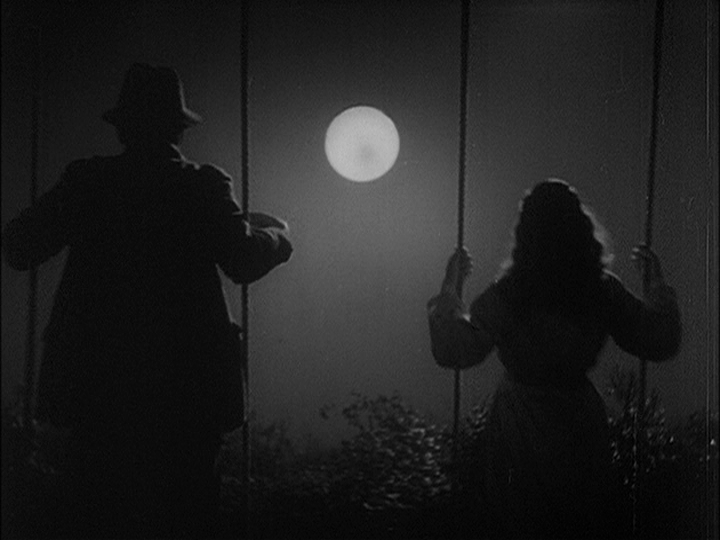
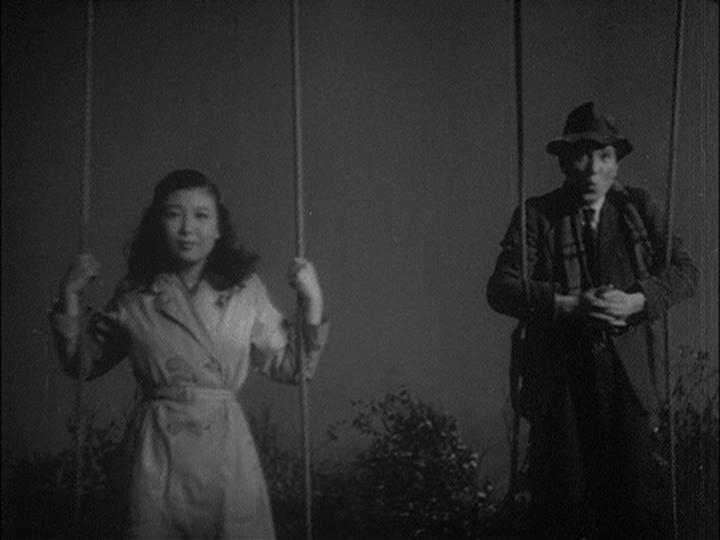
With a swing-set prop so universally accessible and memorable that Kurosawa could not resist the temptation of a reprise at the end of Ikiru, Yuzo and Masako gaze into the bright light of a full moon, resolved in the face of all evidence to the contrary that the weeks and months ahead will somehow yield a better outcome than their meanderings have managed to produce today.
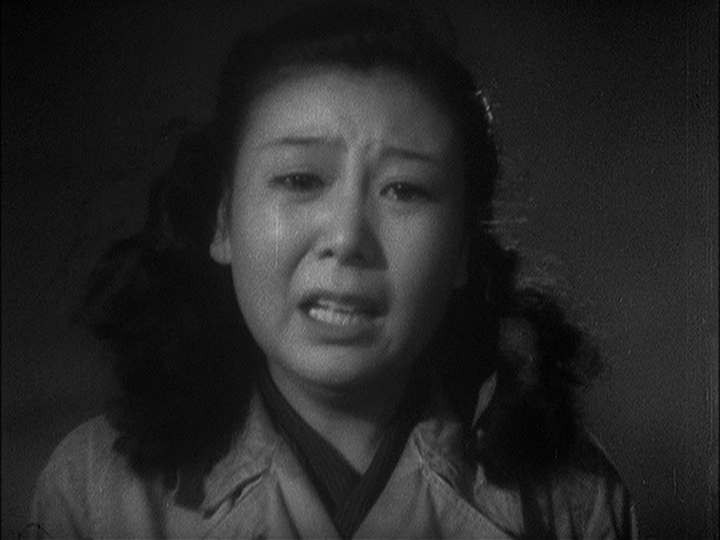
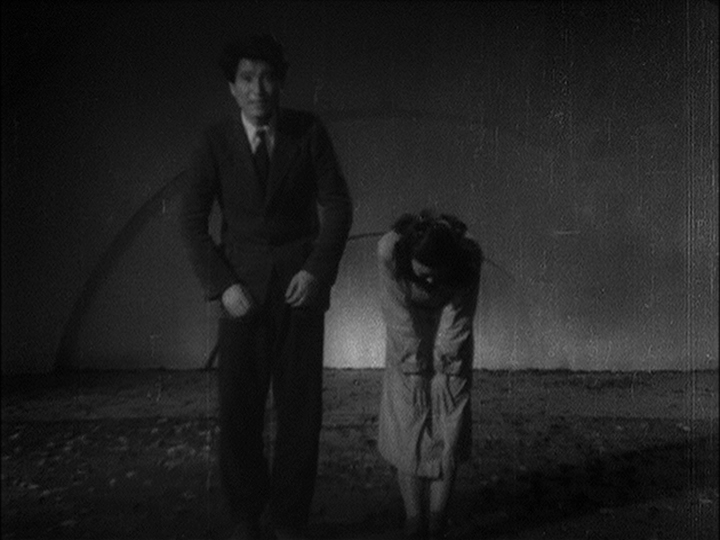
But even the naivete and exuberance of their newly restored confidence is not quite enough to push them over the hump as they gather up their courage to face whatever Monday morning, and a return to their working-class routines, has in store for them. Yuzo, and by extension Kurosawa himself, has a scheme to galvanize not only his but also our collective imagination, in order to produce a facsimile of Schubert’s Unfinished Symphony that the ticket scalpers deprived them of hearing for themselves. Yuzo’s plaintive entreaty to Masako to quiet herself, push aside all doubts, and listen to her quiet inner voice in order to perceive the assembled instruments, gets the process started. But it’s not quite enough, as he’s overcome by gnawing self-doubts and the frailty of his own will, unable to coerce reality to finally do his bidding. And this is where Masako, and Kurosawa, finally have to rely on us, in a final desperate leap, begging us to supply what’s lacking in Yuzo’s determination. She turns to the audience, directly addressing us from the screen, asking us to provide the loud rambunctious applause that will make all the difference and pull them, and other young lovers like them, up and over the obstacles that stand in their way. Talk about a cinematic tightrope act! According to the liner notes, it’s an experiment that didn’t work so well, as the original audiences just sat in awkward silence, unsure what to make of Masako’s pleas, not used to applauding in the middle of a film. As for myself, I had no problem with it at all, watching it alone at home as I did. I simply imagined myself in a theater full of Kurosawa fans, standing on our chairs, cheering and clapping wildly in order to provide our protagonist the boost of courage he so desperately needed.
So what about the fate that eventually befell Yuzo and Masako? We really have no idea how things went for them; at the end of One Wonderful Sunday, Masako gets back on her train to head home, while Yuzo sums up the travails of his day with optimistic, outstretched arms and a jaunty pep in his step. They’re ready for at least another day, presumably much more. We can surmise that somewhere along the way, fortune turned a favorable card on their behalf, that he got a good job, that she was eventually able to move into the modest comforts of a middle-class domecile, that maybe they gave birth to children who grew up identifying with the Sun Tribe and that he might have even worked his way into the upper ranks of management personnel who inhabit films like Intimidation or The Bad Sleep Well. For now, and for always, we can only speculate – but what we do know is that Yuzo and Masako, forever captured in the whirlwind of feelings and obstructions that beset them on One Wonderful Sunday, still embody that essential resilience and reliance on each other that all young couples need to draw on in order to make it in this cold, indifferent and unforgiving world.


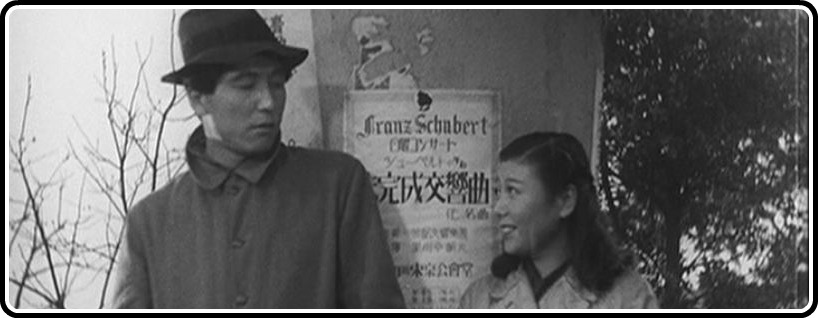

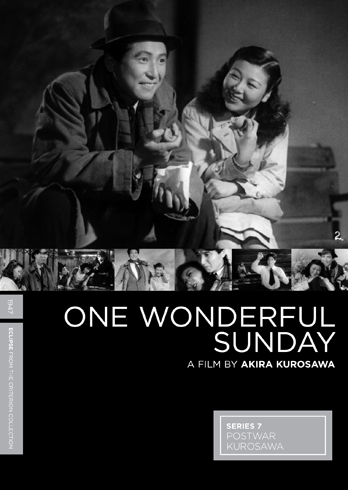

ONE WONDERFUL SUNDAY Chieko Nakakita’s Masako is irrepressible… Isao Numasaki is just great as Yuzo… a moving story of survival, and (true) love… I hardly know where to begin, the film captured me from the very beginning… this one will make you laugh and give a hard tug at your heartstrings… the last 5 minutes is so touching and tender it almost hurts… and, I’m sure that they met again that next Sunday… and again the Sunday after that… and that she would always hear his ‘symphony’… … and eventually, they did get that little place of theirs… and somewhere out in the celluloid universe there is a happy couple sitting on their porch overlooking their garden… and they’re having many Wonderful Sunday’s. This is Kurosawa’s BEST… –Mike
ONE WONDERFUL SUNDAY Chieko Nakakita’s Masako is irrepressible… Isao Numasaki is just great as Yuzo… a moving story of survival, and (true) love… I hardly know where to begin, the film captured me from the very beginning… this one will make you laugh and give a hard tug at your heartstrings… the last 5 minutes is so touching and tender it almost hurts… and, I’m sure that they met again that next Sunday… and again the Sunday after that… and that she would always hear his ‘symphony’… … and eventually, they did get that little place of theirs… and somewhere out in the celluloid universe there is a happy couple sitting on their porch overlooking their garden… and they’re having many Wonderful Sunday’s. This is Kurosawa’s BEST… –Mike